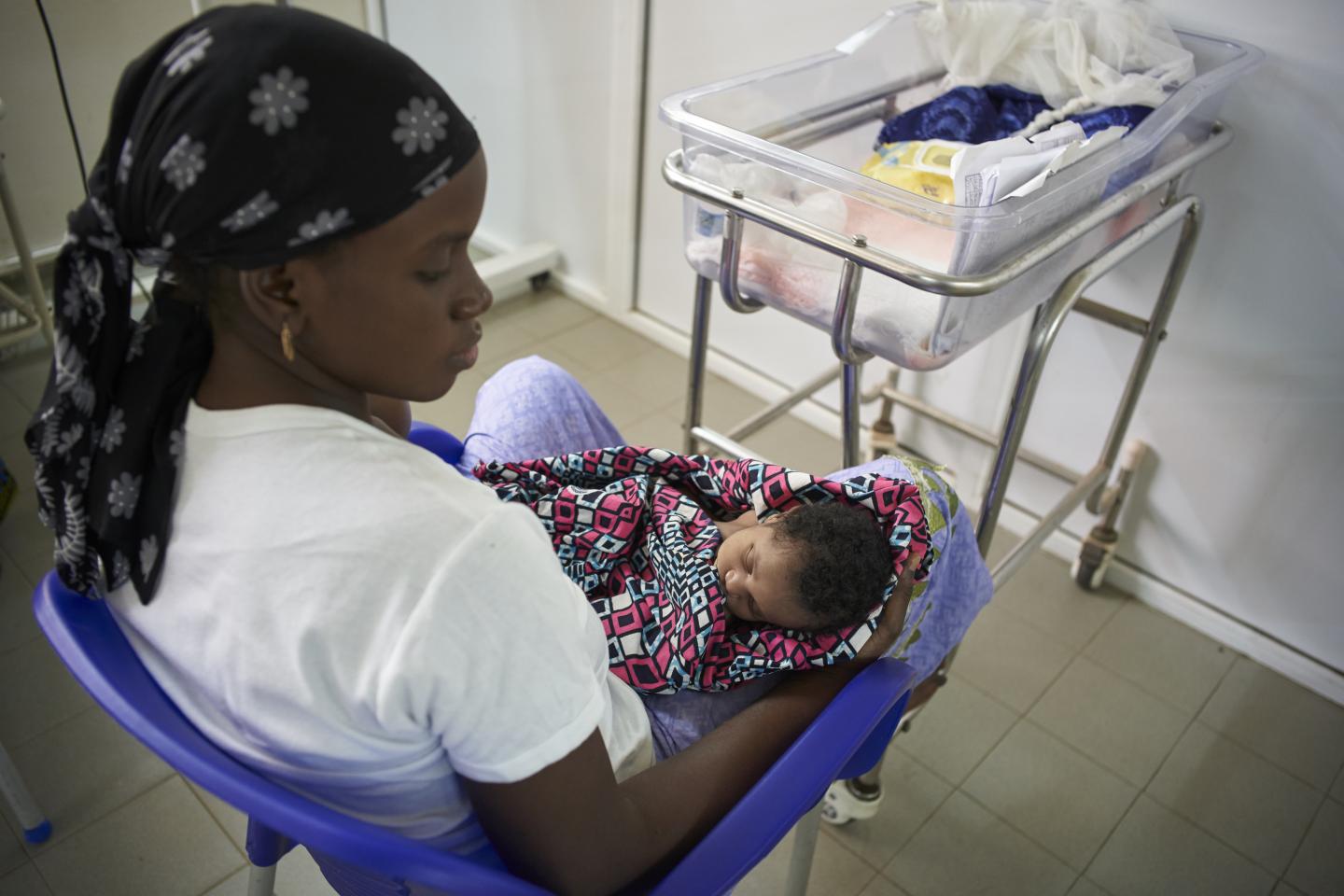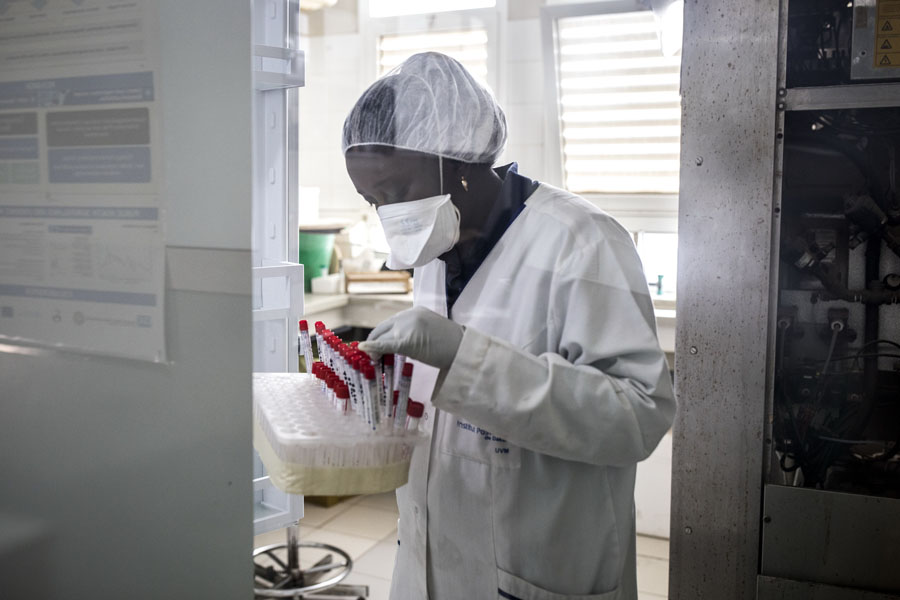
Maternal and Child Health, Pregnancy-related risks in Nigeria
Pregnancy-related risks in Nigeria: it is bothersome to know that every Nigerian woman has a 1-in-22 lifetime risk of dying during pregnancy, child-birth, or after delivery. And also that the World Health Organisation (WHO) has declared that 20% of all the pregnancy-related deaths that happen globally are recorded in Nigeria.
Statistics show that between 600,000 and 900,000 deaths were recorded between 2005 and 2015, with about 58,000 deaths recorded in 2015 alone.
According to the statistics released by the Nigerian federal ministry of health, under the leadership of the former minister of health, Onyebuchi Chukwu, 33,000 women die every year from complications related to pregnancy and childbirth.
In the wake of these unacceptably high and awful number of deaths, maternal and child health care, an important component of primary healthcare services has been ramped up in Nigeria.
Pregnant women now have improved access to a wide range of maternal and child health care services, and available evidences suggest that this has slightly trimmed down the number of pregnancy-related deaths recorded in Nigeria.
There are about 33,000 primary health care centers(PHC) in Nigeria, scattered across states in the federation.
Aside from the many things they do, PHCs are specially equipped with resources, and manpower to provide essential and emergency obstetrics care for pregnant women.
Doctors, midwives, trained nurses, and Community Health Extension Workers(CHEWs) are deployed to these facilities and are sufficiently trained to help women go through pregnancy and childbirth safely.
Pregnancy in Nigeria: Antenatal Care
The first on the list of essential and emergency obstetrics care pregnant women receive in Nigeria is ante-natal care.
This care is provided on out-patient basis in designated clinics called ante-natal clinics.
The ante-natal clinics for pregnant women with low risk are usually run by midwives, while those with high risks, or prone to complications such as threatened abortion, are run by obstetricians in General or Teaching Hospitals, following referrals from the PHC.
Ante-natal care provided by the midwife or obstetrician include:
· Conducting health checks for the pregnant woman and the embryo/foetus.
· Providing health education and important information to ensure a healthy pregnancy, which includes advice on diets, activities and exercises.
· Some medical examinations are done to monitor the growth and positioning of the child in-utero, as well as identify potential risks, such as a pregnancy ultrasound scan, viral markers, Rhesus factor test. etc.
· Some routine medications and supplements might also be prescribed if indicated. Anti-D immunoglobulin injection may also be administered during ante-natal care to prevent the baby from developing Rhesus disease if indicated.
· Administration of Tetanus toxoid vaccine to the woman, to prevent Tetanus infection if she has not already been immunised.
· Malaria prevention through periodic administration of prophylaxis antimalaria medication, Artemisinin combination therapy, and free distribution of insecticide treated net.
End of pregnancy and Delivery in Nigeria
After going through a full gestation period of about 38 weeks, pregnant women fall into labour which might be initiated naturally or induced by the obstetrician or midwife.
The midwife or the obstetrician helps the woman through the three stages of labour, employing their skills, and knowledge, till the child and the placenta are delivered safely.
There are two kinds of delivery, namely, vaginal delivery, and caesarian delivery.
The delivery of women with uncomplicated pregnancies is usually attended to by midwives, via vaginal delivery.
However, once complications set in, they are often referred to General or Teaching hospitals for caesarian delivery, a surgical operation to deliver the baby.
Post-natal care
After delivery, mothers still need the support of midwives, nurses and doctors to help them successfully nurse the child, and till the physiological changes that came with pregnancy normalise.
This therefore necessitates the provision of post-natal care.
Post-natal care is made available to mothers in Nigeria in post-natal clinics.
The care provided by the midwife, or obstrician includes:
· Providing information and health education that helps mothers identify signs and symptoms of life-threatening conditions, such as post-partum bleeding, and also provide appropriate emergency care.
· Facilitating exclusive breastfeeding through health education, and recommending a breastfeeding programme that is convenient for both mother and child.
· Assessment of the general health status of the mother and the child, and provision of treatment if the signs and symptoms of any illness is noticed. If the mother is ill, she is treated using a standing order, or at the discretion of the midwife or obstetrician. If the child is noticed to be ill, the child is treated using the IMCI (Integrated Mangement of Childhood Illnesses) guidelines.
· Male circumcision is carried out on the child by the midwife on the 8th day of birth. Female circumcision is discouraged and not practiced in health care facilities in Nigeria.
· Administration of vaccines, following the national immunisation schedule. This is to prevent the child from common childhood illnesses that affect children under five years, such as Tuberculosis, Polio etc.
Pregnancy risks in Nigeria, Prevention of Mother to Child Transmission (PMTCT) of HIV
Pregnant women living with HIV in Nigeria can have HIV negative babies, as a result of the PMTCT of HIV scheme available at all tiers of care facilities.
HIV positive mothers are cared for through pregnancy, and during breastfeeding to ensure the baby doesn’t get infected.
The WHO guidelines for this care is followed through all the stages, till the child is weaned from breastfeeding.
The Viral load of the pregnant woman and her CD4 count is monitored at intervals specified by the guidelines, and she is placed on life-long Anti-retroviral therapy or short term Anti-retroviral prophylaxis, during pregnancy, delivery, and breastfeeding.
This lowers the woman’s viral load and reduces the odds of infecting the child in-utero, during delivery, or during breastfeeding.
Vesico-Vaginal Fistula (VVF) Care
One of the most common complications that arise from pregnancy and child-birth is Vesico-vaginal fistula (VVF).
VVF is prevalent in the northern part of Nigeria, as a result of low levels of education, and the cultural practice of early marriage.
As part of the government’s intervention to tackle complications arising from pregnancy, many VVF centres have been established to cater for the health care needs of women that develop VVF.
The article was written for Emergency Live by Oluwafemi Adesina
Read Also:
Air Ambulance And MEDEVAC In Nigeria – They Come From The Sky, They Are The Flying Doctors!
Medical Corner – Management Of Tachycardiac Arrhythmias In Pregnancy
Nigeria, Which Are The Most Used Stretchers And Why
Becoming A Nurse In Nigeria: Training Course, Salary And Career Prospects
The Power Of Women In Nigeria: In Jagawa Poor Women Took Up A Collection And Bought An Ambulance
UNICEF Female Mobilizers Are Struggling Against Polio In Nigeria, One Home At A Time



